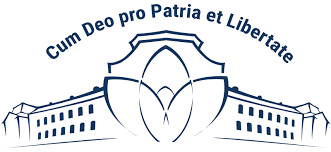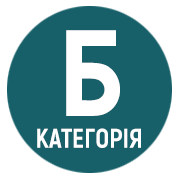INTELLECTUAL POTENTIAL OF TERRITORIAL COMMUNITIES OF VYZHNYTSIA RAION OF CHERNIVTSI OBLAST AS THE BASIS OF THEIR INNOVATIVE DEVELOPMENT
DOI:
https://doi.org/10.32782/2786-5843/2025-3-4Keywords:
intellectual potential, external independent evaluation, national multi-subject test, level of education, educational network, transport accessibility to social infrastructure institutions, territorial community, decentralizationAbstract
The relevance of the study is that today Ukraine is going through a difficult stage of its formation due to the long-term economic crisis, the Covid-19 pandemic, as well as the war with the Russian Federation, which caused a lot of destruction of urban and rural settlements, undermining of territories, touched the initiated process of decentralization and many other problems of both economic and social nature. Intellectual potential (capital) should become the key to successful post-war formation. It is at this time that Ukraine will need to attract highly qualified workers of various professions to various fields at all administrative and territorial levels – territorial communities, raions, regions, oblasts and the national (state) level. The subject of the study is the analysis of the territorial and spatial features of the formation of the intellectual potential of territorial communities of Vyzhnytsia raion, which is distinguished by its natural, economic, socio-cultural, transport and logistical uniqueness. The study selected students, who in the near future will be the main driving force of change in the post-war reconstruction of communities and territories of all regions of Ukraine. The purpose of the work was to provide a detailed analysis of territorial and spatial differences in the formation of the intellectual potential of communities in the selected raion based on the results of the 2021 external independent evaluation, the 2024 national multi-subject test (in three academic disciplines: Ukrainian language, mathematics, and history of Ukraine), the 3rd stage of the All-Ukrainian Student Olympiads, and the 2nd stage of the competition-defense of research works by students-members of the Academy of Sciences of Ukraine in the 2024–2025 academic year (all disciplines). The research methodology is based on a comprehensive geographical approach using statistical methods, as well as ranking by rating indicators of the level of development of the intellectual potential of students in the territorial communities of Vyzhnytsia raion.Comparative geographical analysis and synthesis, mathematical processing of statistical data, and others were also used. The results of the work have theoretical and practical significance, which is traced in the identification of various factors in the process of forming intellectual potential (capital) in individual communities of Vyzhnytsia raion. Scope of application of the results: the data obtained can be used in the development of Strategies and Programs for the socio-economic development of Vyzhnytsia raion and its individual communities, by education departments in order to improve the level of education and increase students’ interest in olympiads and competitions, by the departments of regional development (or others responsible for this in communities) in order to optimally plan the development of the educational network and improve transport accessibility to the general secondary education institutions. Conclusions: the intellectual potential of the communities of Vyzhnytsia raion was formed under the influence of various factors that affect the educational process in the general secondary education institutions.It was observed that natural conditions are not always decisive in mountainous areas, since Putyla community is a leader in the raion according to the results of testing and olympiads. The communities of the raion have different levels of intellectual development among students. The prospects for further research are in a more detailed study intellectual abilities of different age groups of the population territorial communities raion, and in finding ways to improve the level education, both school and adult education.
References
Стратегія розвитку Чернівецької області на період до 2027 року. URL: strategia-chernivetska-2027.pdf (останнє звернення: 26.07.2025 р.).
Нич Т.В. Географія інтелектуального потенціалу. Географія та туризм. 2012. № 21. С. 161–166.
Нич Т.В. Чинники формування інтелектуального потенціалу регіону. Географія та туризм. 2012. № 22. С. 222–226.
Костащук І.І., Білоус Ю.О. Суспільно-географічні аспекти формування якості знань учнів у Чернівецькій області. Науковий вісник Чернівецького університету: Географія. 2015. С. 145–148; 744–745.
Білоус Ю.О. Територіальна структура загальноосвітнього простору: суспільно-географічні аспекти та оцінка якості знань (на прикладі Чернівецької області) : дис. … на здобуття наук. ступеня докт. наук. 2021, Чернівці.
Bilous Yu. Social and geographical features of the formation of the intellectual potential of Chernivtsi oblast. Chasopys sotsialʹno-ekonomichnoyi heohrafiyi, 29, 2020. 90–98. Погляд на соціально-географічні особливості формування інтелектуального потенціалу Чернівецької області.
Zayachuk M., Kostashchuk I., Darchuk K., Bilous Y. Geoinformation technologies as a basis for research of the optimal location of general secondary education institutions (on the example of Chernivtsi city territorial community). Journal of Geology, Geography and Geoecology, 30 (2), 2021. 389–401.
Довгань О. Сутність та особливості визначення поняття «інтелектуальний капітал». Вісник Хмельницького національного університету. Серія: Економічні науки. 2009. № 6(2). С. 153–157.
Жарінова А. Інтелектуальна власність як фундамент інноваційного розвитку економіки України. Інтелектуальна власність. 2009. № 4. С. 22–26.
Прошак В. Концепція інтелектуального капіталу у сучасній економічній теорії. Вісник Львівського університету. Серія: Економічна. 2003. № 32. С. 593–599.
Прокопенко О.В., Школа В.Ю. Оцінка рівня інтелектуального потенціалу в системі стратегічного управління інноваційним розвитком підприємств. Маркетинг і менеджмент організацій. 2010. № 1. С. 127–131.
Семикіна М.В., Гунько В.І. Інтелектуальний потенціал та його роль у національній економіці. Економіка і управління. 2011. № 1. С. 30–50.
Теницька Н.Б. Складові та чинники формування інтелектуального потенціалу. Наукові праці Полтавської державної академії. Серія: Економічні науки. 2012. № 1 (4). T. 3. С. 219–223.
Український центр оцінювання якості освіти. Результати ЗНО 2021 року. Регіональні дані. 2021.
Український центр оцінювання якості освіти. Результати Національного мультипредметного тесту 2024 року. Регіональні дані. 2024.
Департамент освіти і науки Чернівецької обласної військової (державної) адміністрації. Про результати проведення ІІ етапу Всеукраїнського конкурсу-захисту науково-дослідницьких робіт учнів-членів Буковинської МАН. 2025. URL: 84-від-11.03.2025.pdf (дата звернення: 26.07.2025).
Департамент освіти і науки Чернівецької обласної військової (державної) адміністрації. Про підсумки проведення III етапу Всеукраїнських учнівських олімпіад з навчальних предметів у 2024/2025 н.р. 2025. URL: 54-від-14.02.2025.pdf (дата звернення: 26.07.2025).
ІСУО. (n.d.). Чернівецька область. URL: https://cv.isuo.org/
Мезенцева О.І. Міжнародні чинники розвитку загальної середньої освіти в Україні. Український педагогічний журнал. 2017. № 4. С. 18–26.
Про затвердження Методики формування спроможних територіальних громад : Постанова Кабміну № 214. 2015.







